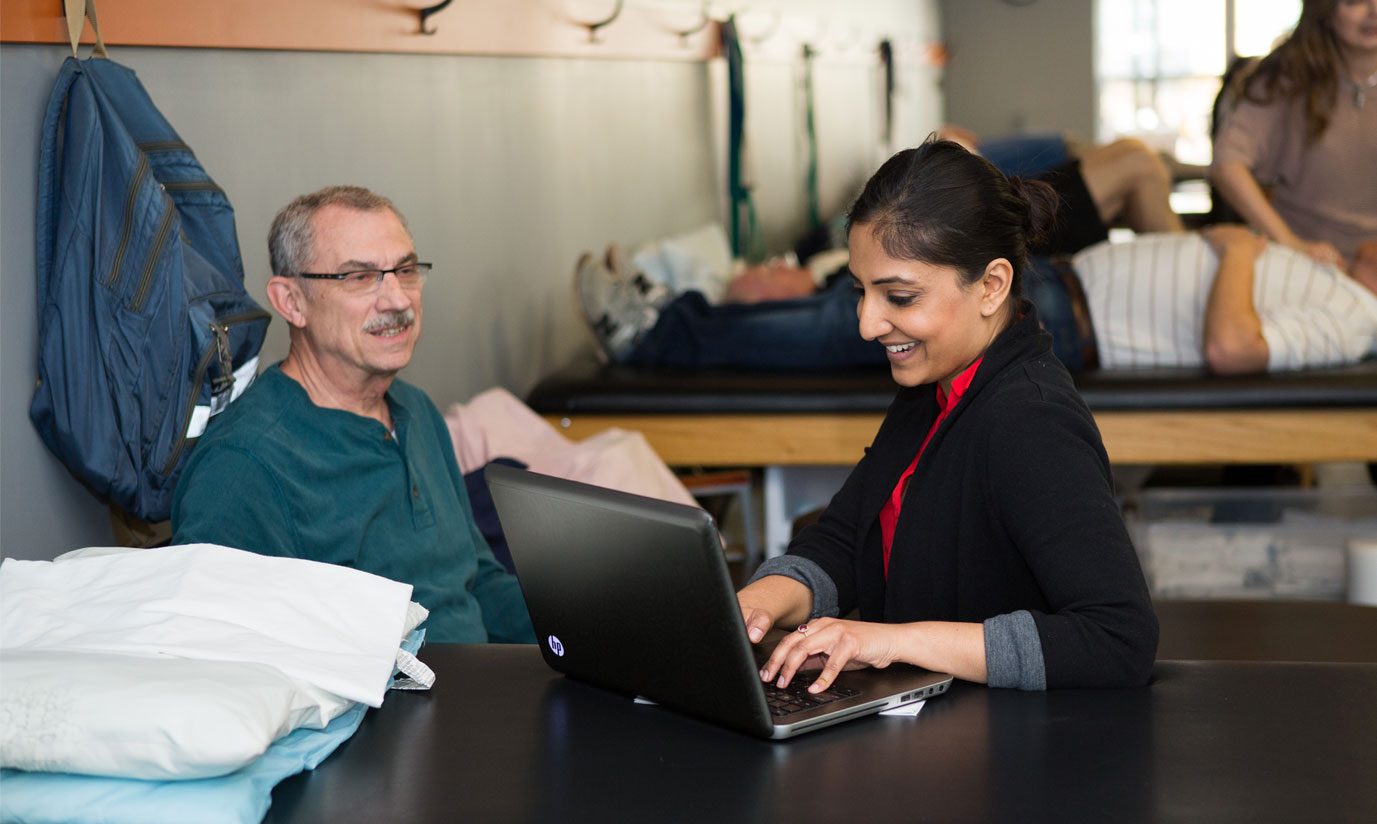
Centennial Lecture Series: Pain Science and Management: A Series of Hot Topics
-
Register
- Non-Member - $449
- PT Member - $199
- PTA Member - $199
- Student - $49
- Post-Professional Student - $99
- Staff - Free!
Growing evidence supports that teaching patients more about the neurophysiology and biology of pain allows for decreased pain, increased movement and function, various decreased psychometric measurements, and higher compliance with therapy. This series of five lectures will instruct attendees about how to communicate with their patients about the neuroscience of pain, learn communication strategies that can help patients along their recovery path, recognize how brief remapping techniques can alter patient sensitivity and positively influence pain in real-life clinical practice, understand how various complex pain issues share some common features, and understand why a new bio-psycho-social approach is needed to address pain in orthopedic surgery.
Learning Objectives:
- Pain Neuroscience Education: Teaching People about Pain
- Analyze how common faulty cognitions impact pain and disability in people with pain
- Integrate the latest neuroscience of pain into clinical reasoning in people with persistent pain
- Explain to a patient how the body’s alarm system, the nervous system, becomes increasingly sensitive; how it impacts function and how therapy can help
2. Words That Harm and Words That Heal
- Develop and understanding how pain is produced by the brain based on perception of threat
- Recognize how many current models of reception/front office may not only “not help” but indeed increase a patient’s pain experience
- Utilize the latest pain neuroscience research to develop a front office approach that enhance patient care and customer service
3. Graded Motor Imagery for the Clinician
- Develop a greater understanding of the structural and functional changes in the brain as it pertains to pain.
- Recognize various clinical tests that can be used to screen for altered neuroplasticity.
- Recognize how brief remapping techniques can alter patient sensitivity and positively influence pain in real-life clinical practice.
4. Widespread Pain and Fatigue: Treat the Patient, not the Label
- Develop a biological and physiological understanding of widespread pain and fatigue
- Be updated on the latest evidence in regards to etiology, diagnosis, examination and treatment
- Be able to use pain neuroscience education to help patients develop a greater understanding of their pain experience and build an evidence-based treatment plan
5. Preoperative Pain Neuroscience Education
- Understand why a new bio-psycho-social approach is needed to address pain in orthopedic surgery
- Understand the development and validation process of the preoperative pain neuroscience education program for orthopedics
- Recognize why the preoperative neuroscience educational program produced superior results to the biomedical model utilized by US surgeons
Adriaan Louw, PT, PhD
VP Faculty Experience and Director of Pain Science
Evidence in Motion
Adriaan earned his undergraduate, master's degree and PhD in physiotherapy from the University of Stellenbosch in Cape Town, South Africa. He is an adjunct faculty member at St. Ambrose University and the University of Nevada Las Vegas, teaching pain science. Adriaan has taught throughout the US and internationally for 25 years at numerous national and international manual therapy, pain science and medical conferences. He has authored and co-authored over 80 peer-reviewed articles related to spinal disorders and pain science. Adriaan completed his Ph.D. on pain neuroscience education and is the Director of the Therapeutic Neuroscience Research Group - an independent collaborative initiative studying pain neuroscience. Adriaan is a senior faculty, pain science director and vice-president of faculty experience for Evidence in Motion.
Disclosure(s): BehaVR: Consultant/Advisory Board (Ongoing); EIM/Confluent Health: Employment (Ongoing), Ownership Interest ( includes stock, stock options, patent or other intellectual property) (Ongoing), Speaker/Honoraria (includes speakers bureau, symposia, and expert witness) (Ongoing); Medbridge: Speaker/Honoraria (includes speakers bureau, symposia, and expert witness) (Ongoing); OPTP: Ownership Interest ( includes stock, stock options, patent or other intellectual property) (Ongoing)
Course Instructions
- Click on the Contents tab to watch the course recording.
- Click the Take Quiz button to complete the assessment. Learners will have 3 attempts to pass and must answer at least 70% of questions correctly.
- Click Fill Out Survey under the Evaluation listing to provide valuable course feedback. Scroll down on all questions as there may be answer options that expand past the size of the window.
- Click the View/Print Your Certificate button under the Certificate listing. You can view/print your certificate at any time by visiting the APTA Learning Center and clicking the CEU Certificate/Transcript link on the left-hand side of the page.
Need Assistance?
For assistance logging in, accessing activities, claiming credit, or for other questions or concerns, please e-mail learningcenter@apta.org.


